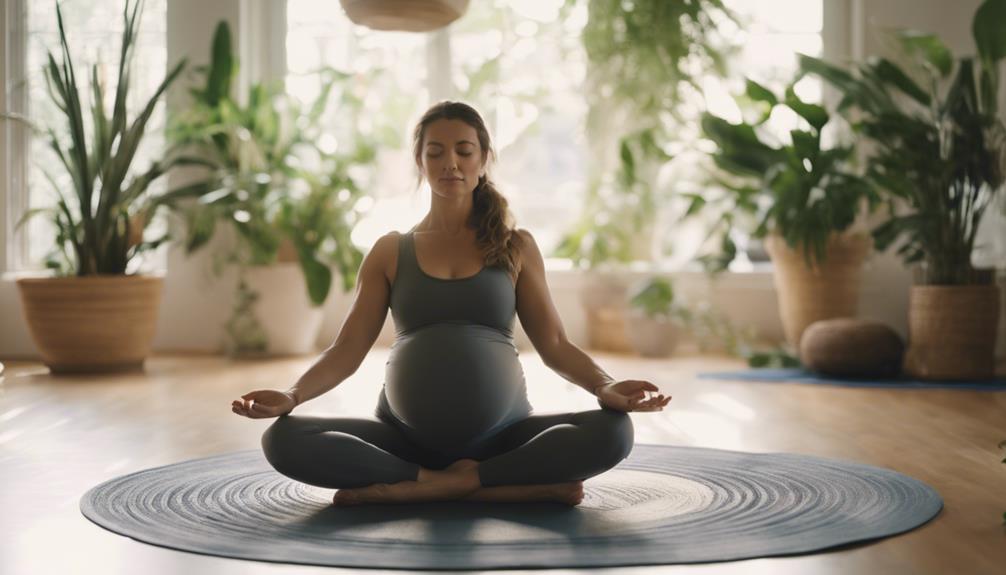Does Yoga Help With Depression

Depression is a prevalent mental health condition that affects millions of individuals worldwide. In recent years, alternative therapies such as yoga have gained popularity as complementary approaches to managing depression. In this blog post, we will explore the question, “Does yoga help with depression?” by examining scientific research, personal experiences, and the psychological benefits of yoga practice.
The Science Behind Yoga and Mental Health
Yoga is an ancient practice that combines physical postures, breathing exercises, and meditation to promote holistic well-being. Research indicates that yoga can have a profound impact on mental health, specifically in alleviating symptoms of depression. Numerous studies have shown that regular yoga practice can help reduce anxiety, enhance mood, and improve overall emotional resilience.
The key lies in yoga’s ability to regulate the stress response system. When we practice yoga, the body releases endorphins—natural mood lifters that can counteract feelings of sadness and anxiety. Furthermore, yoga encourages mindfulness, which helps individuals become more aware of their thoughts and feelings, fostering a healthier relationship with their emotions.
How Yoga Addresses Symptoms of Depression
One of the main reasons people ask, “Does yoga help with depression?” is due to its unique approach to addressing symptoms. Depression manifests in various ways, including fatigue, lack of motivation, and negative thought patterns. Yoga can counteract these symptoms through physical activity, promoting movement and vitality. The practice encourages individuals to engage with their bodies, which can be especially beneficial for those experiencing lethargy.
Related Posts:
Additionally, yoga’s emphasis on breath control and relaxation techniques can significantly reduce stress levels. Deep breathing exercises help activate the parasympathetic nervous system, which promotes a sense of calm and relaxation. This physiological response can help individuals feel more grounded and less overwhelmed by their thoughts and feelings.
The Role of Mindfulness in Yoga Practice
Mindfulness is a core component of yoga that involves being fully present in the moment without judgment. This practice can be particularly beneficial for those struggling with depression, as it encourages individuals to observe their thoughts and emotions without becoming overwhelmed by them. When individuals practice mindfulness during yoga, they learn to acknowledge their feelings and let them pass without attaching to negative thought patterns.
Research has shown that mindfulness practices can lead to decreased levels of rumination, a common symptom of depression where individuals dwell on negative thoughts. By incorporating mindfulness into their routines, individuals can cultivate a more positive mental state and develop healthier coping mechanisms.
Different Types of Yoga for Depression Relief
There are various types of yoga, each offering different benefits that can be tailored to individual needs. Some popular styles include Hatha, Vinyasa, Yin, and Restorative yoga. Hatha and Vinyasa focus on physical movement, which can energize and uplift the mood. Yin and Restorative yoga, on the other hand, prioritize relaxation and introspection, which can be invaluable for those needing to unwind and process their emotions.
For individuals new to yoga or those with limited mobility, gentle forms like Chair Yoga may be an excellent starting point. This adaptability makes yoga accessible to individuals at various fitness levels, allowing everyone the opportunity to experience its benefits.
Incorporating Yoga Into Your Mental Health Routine
To reap the benefits of yoga for depression, it is essential to incorporate it into your daily routine. Start by setting aside a specific time each day to engage in yoga practice, even if it’s only for 15 to 30 minutes. Creating a dedicated space that feels calming and inviting can enhance your experience.
Consider joining a local yoga class or exploring online platforms that offer guided sessions. Participating in group classes can also foster a sense of community, which is crucial for individuals dealing with depression. Sharing experiences and connecting with others can provide social support and validation.
Combining Yoga with Other Therapies
While yoga can be an effective tool for managing depression, it is essential to remember that it should not replace professional treatment. Integrating yoga with other forms of therapy, such as cognitive-behavioral therapy (CBT) or medication, can provide a more comprehensive approach to mental health care.
Consulting with a healthcare professional before starting any new treatment plan is crucial. They can help guide you in finding a balanced approach to managing your depression, ensuring that you receive the support you need.
Personal Stories: Real-life Experiences with Yoga and Depression
Many individuals have shared their transformative journeys with yoga as a means of coping with depression. Personal accounts highlight how yoga has helped them regain a sense of control over their lives, improve their mood, and foster a deeper connection with themselves.
For instance, individuals often report feeling more in tune with their bodies and emotions after practicing yoga regularly. They describe a newfound sense of peace and acceptance, which can be incredibly empowering for those battling depression. These personal stories serve as a testament to yoga’s potential benefits and encourage others to explore the practice.
Conclusion: Embracing Yoga as a Tool for Mental Wellness
In conclusion, the question, “Does yoga help with depression?” can be answered with a resounding yes. Yoga offers a holistic approach to mental health that addresses both the body and mind, fostering resilience and emotional well-being. By embracing yoga as a complementary tool in conjunction with other treatments, individuals can experience a greater sense of balance and peace.
If you or someone you know is struggling with depression, consider incorporating yoga into your routine. The journey to mental wellness is unique for everyone, and yoga may provide the support and relief needed to navigate the challenges of depression.Light On YogaIs Yoga Good For Bulging DiscDoes Yin Yoga Help You Lose Weight